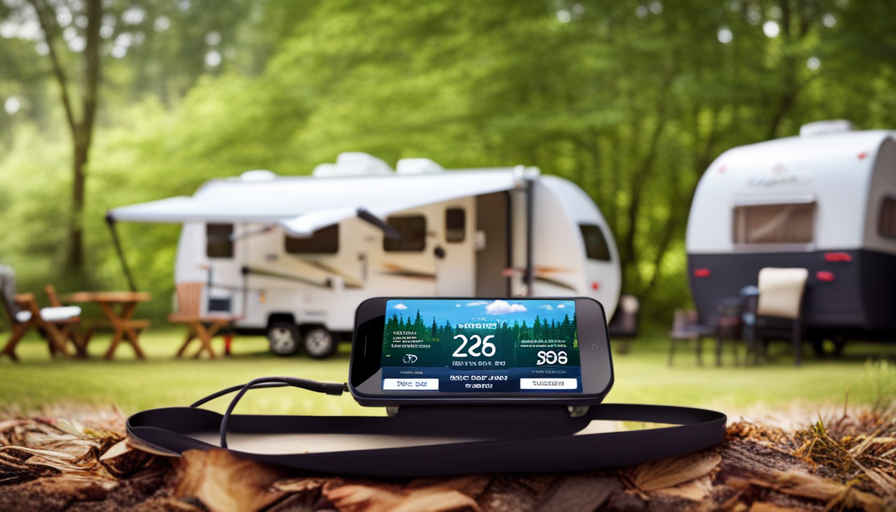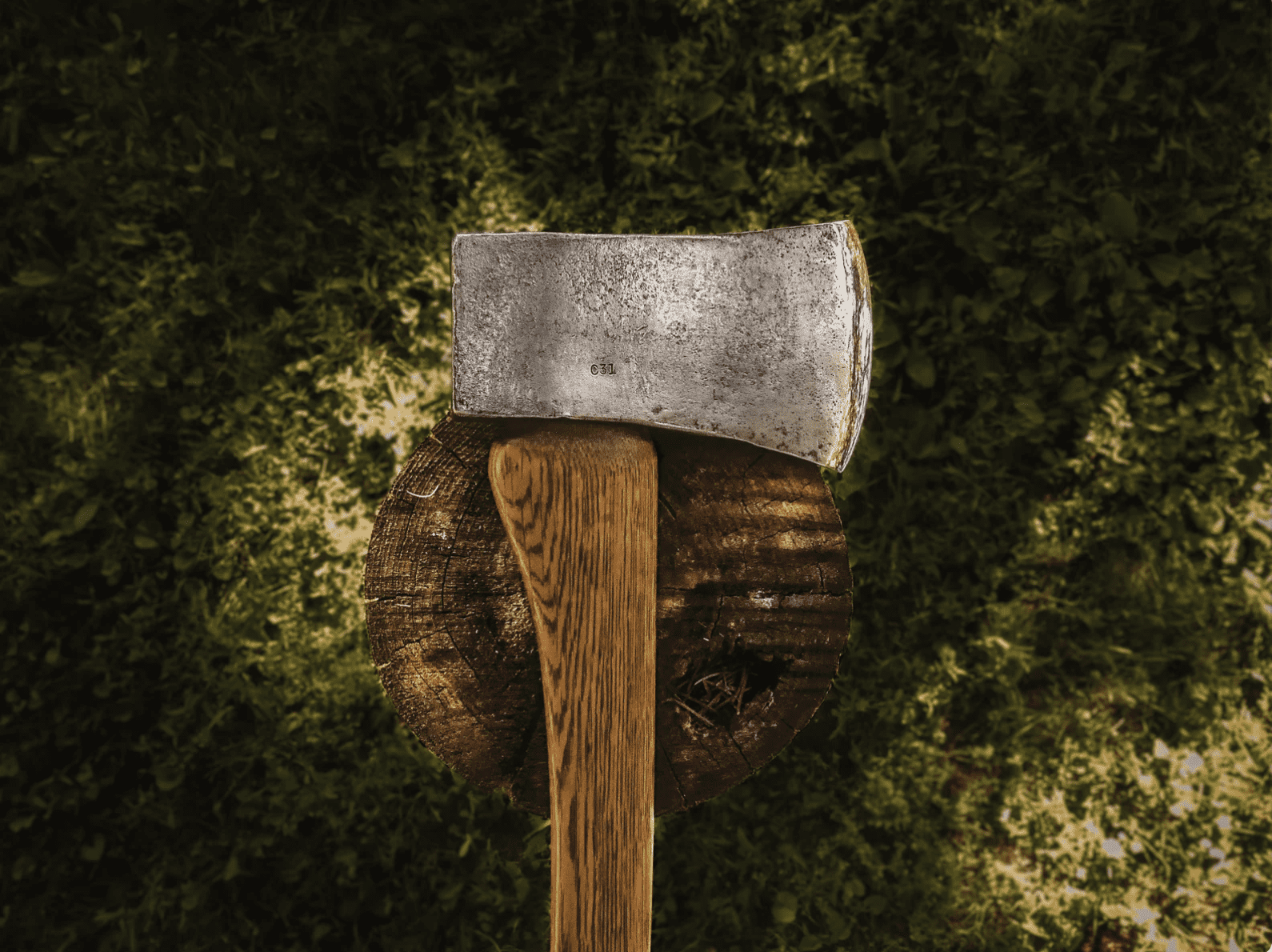Did you know that approximately 10 million Americans own a camper or RV (Recreational Vehicle)? With the rising popularity of camping and road trips, it makes sense why more people are considering buying their own camper. However, it’s important to understand that your credit score may play a significant role in securing a camper successfully.
According to recent data, nearly 30% of Americans have a credit score below 601, which is considered a poor credit score. So, what credit score do you need to buy a camper? In this article, we will explore the importance of credit scores in financing a camper, the minimum credit score required, as well as tips to improve your credit score.
We will also discuss alternative financing options for those with lower credit scores, how to research and compare lenders, and the loan application process. By the end of this article, you’ll have a clear understanding of what it takes to finance your dream camper and hit the open road.
Key Takeaways
- Credit score is important in buying a camper as it affects credit utilization and interest rates.
- Higher credit scores result in lower interest rates and increase chances of approval for financing.
- Improving creditworthiness can lead to better financing options and increase the chances of securing a camper loan.
- Alternative financing options are available for individuals with lower credit scores, such as specialized lenders or dealerships, credit unions, and online lenders specializing in borrowers with less-than-perfect credit.
Understanding Credit Scores
Do you know what credit score you need to buy a camper?
Understanding credit scores is essential when it comes to making any major purchase, including a camper. One important factor to consider is credit utilization, which refers to the amount of credit you’re using compared to your total credit limit.
Lenders typically prefer to see a low credit utilization ratio, as it indicates that you’re responsible with your credit. Another crucial aspect is the impact of credit scores on interest rates. Generally, the higher your credit score, the lower the interest rate you’ll qualify for. This can save you a significant amount of money over the life of your camper loan.
Additionally, having a higher credit score can also increase your chances of getting approved for financing. Lenders view individuals with higher credit scores as less risky borrowers. Therefore, it’s important to maintain a good credit score if you’re considering purchasing a camper.
Understanding these factors will help you navigate the financing process and ensure that you’re in the best position to buy your dream camper.
Importance of Credit Score in Financing a Camper
Imagine yourself driving down the open road, wind in your hair, as your dreams of owning a cozy mobile oasis become a reality. But before you can hit the road in your very own camper, it’s important to understand the role your credit score plays in financing this adventure.
-
Improving creditworthiness: A higher credit score indicates to lenders that you’re a responsible borrower. By making timely payments, reducing your debt, and avoiding new credit inquiries, you can improve your creditworthiness and increase your chances of securing favorable financing options.
-
Credit score impact on interest rates: Your credit score directly impacts the interest rates you may qualify for when financing a camper. A higher credit score typically translates to lower interest rates, which can save you thousands of dollars over the life of your loan.
-
Transition to ‘minimum credit score for camper financing’: So, now that you understand the importance of your credit score in financing a camper and how it can impact your interest rates, let’s explore the minimum credit score required to turn your wanderlust into a reality.
Minimum Credit Score for Camper Financing
Get ready to hit the road in your dream mobile oasis by understanding the key factor that determines your eligibility for camper financing: your creditworthiness.
When it comes to camper financing, lenders will evaluate your credit score to assess the risk involved in lending you the money. So, what is the minimum credit score required for camper financing?
While there is no universal minimum credit score for camper financing, a good rule of thumb is to aim for a credit score of at least 650. This is considered a fair credit score, and it shows lenders that you have a decent credit history and are likely to make your payments on time. However, it’s important to note that each lender may have different requirements, and some may be willing to work with borrowers with lower credit scores.
To improve your chances of getting approved for camper financing, it’s crucial to work on improving your credit score. This can be done by making all payments on time, reducing your debt-to-income ratio, and keeping your credit utilization low. By taking these steps, you can increase your creditworthiness and enhance your chances of securing financing for your dream camper.
Tips to Improve Your Credit Score
When it comes to improving our credit scores, there are a few key points to keep in mind.
Firstly, paying bills on time is essential as it shows lenders that we’re responsible and reliable borrowers.
Secondly, reducing credit card debt can have a positive impact on our credit score, as it demonstrates that we’re managing our finances effectively.
Lastly, checking our credit report for errors is crucial, as any inaccuracies could potentially bring down our credit score unfairly.
By focusing on these three areas, we can work towards improving our credit score and ultimately achieving our financial goals.
Paying Bills on Time
To successfully buy a camper, you’ll need to have a credit score of at least 650 and consistently pay your bills on time. Studies show that individuals with higher credit scores are more likely to be responsible with their financial obligations.
Improving creditworthiness is essential for achieving a higher credit score. One way to do this is by focusing on your credit utilization ratio, which is the amount of credit you’re using compared to your total available credit. A lower ratio demonstrates to lenders that you’re using credit responsibly and can positively impact your credit score.
Paying bills on time is crucial in maintaining a good credit utilization ratio, as late payments can negatively affect your score. By consistently meeting your financial obligations, you can demonstrate your creditworthiness and increase your chances of obtaining a camper loan.
Reducing credit card debt is another important step in improving your creditworthiness and will be discussed in the next section.
Reducing Credit Card Debt
Lowering the amount of money you owe on your credit cards can greatly improve your financial situation and increase your chances of securing a camper loan.
One effective way to reduce credit card debt is to focus on reducing the interest you pay. Contacting your credit card company and negotiating a lower interest rate can save you a significant amount of money in the long run.
Additionally, exploring credit card consolidation options can help simplify your debt payments and potentially lower your interest rates. Consolidating multiple credit card balances into one loan can make it easier to manage your debt and potentially save money on interest charges.
By reducing your credit card debt and minimizing interest payments, you can improve your credit score and enhance your ability to qualify for a camper loan.
Checking your credit report for errors is another crucial step in the process, which we will discuss in the next section.
Checking Your Credit Report for Errors
After reducing your credit card debt, it’s important to check your credit report for errors. A clean and accurate credit report is essential when it comes to buying a camper.
Start by obtaining a free copy of your credit report from each of the three major credit bureaus – Equifax, Experian, and TransUnion. Carefully review the report for any inaccuracies, such as late payments or accounts that don’t belong to you. If you find any errors, you have the right to dispute them and have them removed from your report.
Additionally, consider enrolling in credit report monitoring services to stay informed about any changes or potential fraudulent activity. By taking these steps, you can ensure that your credit report is in good shape and be better prepared to explore alternative financing options for lower credit scores.
Alternative Financing Options for Lower Credit Scores
Despite having a lower credit score, there are alternative financing options available for purchasing a camper. If your credit score falls below the ideal range, which is typically around 700 or higher, you may still be able to secure financing through specialized lenders or dealerships that cater to individuals with lower credit scores.
These alternative financing options often have credit score requirements that are more lenient, allowing you to obtain a loan even if your credit is not perfect.
One alternative financing option for lower credit scores is to seek financing through a credit union. Credit unions tend to have more flexible lending criteria compared to traditional banks, which can work in your favor if you have a lower credit score.
Another option is to consider financing through an online lender that specializes in working with borrowers who have less-than-perfect credit. These lenders often have higher interest rates, but they can provide you with the opportunity to purchase a camper despite your credit score.
By exploring these alternative financing options, you can still fulfill your dream of owning a camper, even if your credit score is not ideal. Once you have secured financing, it’s important to start preparing your finances for camper ownership.
Preparing Your Finances for Camper Ownership
When it comes to preparing our finances for camper ownership, there are two key points that we need to focus on: budgeting for monthly payments and expenses, and saving for a down payment.
By creating a realistic budget, we can ensure that we have enough money to cover our monthly payments and other expenses related to owning a camper. Additionally, saving for a down payment will help us secure a better financing option and reduce the overall cost of owning a camper in the long run.
Budgeting for Monthly Payments and Expenses
To effectively budget for monthly payments and expenses, it’s important to determine the credit score you need to buy a camper. When it comes to monthly budgeting, calculating expenses is crucial. Start by considering the cost of the camper itself, as well as any additional fees such as insurance, maintenance, and storage.
Don’t forget to account for fuel costs, campground fees, and potential repairs. By accurately estimating these expenses, you can create a realistic budget that fits your financial situation.
As for the credit score needed, it can vary depending on the lender and the specific camper you’re interested in. Generally, a higher credit score will give you access to better interest rates and loan terms.
Now, let’s discuss how to save for a down payment on your dream camper.
Saving for a Down Payment
After budgeting for monthly payments and expenses, the next step in preparing to buy a camper is saving for a down payment.
Saving strategies can vary depending on individual circumstances, but there are a few common options to consider. Firstly, setting a specific savings goal can provide a clear target to work towards. This can help motivate and track progress.
Secondly, it’s important to explore down payment options. Some people may choose to use their savings, while others might consider using a trade-in or selling assets to contribute towards the down payment.
Additionally, exploring financing options like personal loans or low-interest credit cards can provide alternative avenues for saving.
By implementing these strategies, individuals can work towards accumulating the necessary funds for a down payment. Once this is achieved, the next step is to research and compare lenders to find the best financing option for purchasing a camper.
Researching and Comparing Lenders
To find the best lender for your camper purchase, start by comparing interest rates and loan term options from different lenders. This step is crucial in ensuring that you get the most favorable terms and conditions for your loan.
By comparing interest rates, you can determine which lender offers the lowest rate, which ultimately means paying less in interest over the life of the loan. Additionally, it’s important to consider the loan term options that each lender offers. Some lenders may have shorter loan terms, which means higher monthly payments but a quicker payoff. Others may offer longer loan terms, resulting in lower monthly payments but a longer duration of the loan.
When researching and comparing lenders, it’s essential to look beyond just the interest rates and loan term options. Consider other factors such as customer reviews, reputation, and customer service. A lender with a good track record of customer satisfaction can provide peace of mind throughout the loan process.
Understanding the loan application process is the next step in securing financing for your dream camper. By familiarizing yourself with the requirements and necessary documents, you can be prepared and organized when it’s time to apply for the loan.
Understanding the Loan Application Process
When applying for a loan to buy a camper, there are two key points to consider: the documentation needed and the approval timeframes.
In terms of documentation, lenders typically require proof of income, proof of identity, and proof of residence. It’s important to gather all the necessary documents beforehand to streamline the application process.
As for approval timeframes, this can vary depending on the lender and the complexity of the application. It’s advisable to inquire about the estimated approval timeframes to ensure a smooth and timely loan application process.
Documentation Needed
Don’t forget, you’ll need certain documentation to buy a camper and it’s crucial to have them ready.
When it comes to documentation requirements, lenders typically ask for proof of income, such as pay stubs or tax returns, to verify your ability to repay the loan. Additionally, they may require bank statements to assess your financial stability.
It’s important to gather these documents beforehand to expedite the loan application process. By having your documentation ready, you can demonstrate your financial responsibility and improve your chances of approval.
Now that you understand the importance of documentation, let’s move on to the next step: approval timeframes.
Approval Timeframes
Once you’ve submitted your loan application, you’ll be eagerly awaiting the green light that signals your dreams are on the horizon. The approval timeframes for camper loans can vary depending on the lender and your individual financial situation.
It’s important to understand loan terms and compare interest rates to ensure you’re getting the best deal possible. Here are a couple of things to keep in mind while waiting for approval:
-
Be patient: Loan approvals can take anywhere from a few days to a few weeks, so try to stay calm and avoid unnecessary stress.
-
Stay informed: Keep in touch with your lender to get updates on the status of your application and any additional documentation they may need.
Understanding loan terms and comparing interest rates will help you make an informed decision when negotiating loan terms with lenders in the next section.
Negotiating Loan Terms with Lenders
To get the best loan terms, you should definitely consider negotiating with lenders, as it can help you secure a camper at the most favorable terms possible. When negotiating with lenders, one of the key factors to focus on is the interest rate. A lower interest rate can save you a significant amount of money over the life of your loan.
Start by doing your research and comparing interest rates offered by different lenders. Use this information to negotiate with the lender of your choice and try to secure a lower rate.
Another option to consider is securing a cosigner. A cosigner with a strong credit history can help you qualify for a lower interest rate or a higher loan amount. This can be particularly beneficial if your credit score isn’t as high as you’d like it to be.
By negotiating interest rates and potentially securing a cosigner, you can improve your chances of getting a loan with favorable terms for your camper purchase.
Once you’ve finalized your loan terms, you can move on to the next step of finalizing your camper purchase.
Finalizing Your Camper Purchase
When finalizing your camper purchase, it’s important to have all the necessary paperwork ready, such as proof of insurance and registration, in order to ensure a smooth transaction.
For example, imagine you found the perfect camper and negotiated a great deal with the seller. Now, all you need to do is gather your paperwork, sign the necessary documents, and you’ll be ready to hit the road in your new adventure vehicle.
Once you have finalized the purchase, it’s crucial to consider budgeting for maintenance costs. Campers require regular upkeep and repairs, so it’s essential to set aside funds to cover these expenses. From routine maintenance tasks like oil changes and tire rotations to more significant repairs, having a budget in place will help you avoid any financial surprises down the road.
Additionally, finding the right camper model is key. Consider your specific needs and preferences when choosing a camper. Think about the number of people it needs to accommodate, the amenities you desire, and the type of terrain you plan to explore. Research different models, read reviews, and visit dealerships to get a feel for the options available. By doing your due diligence and finding the right camper model, you’ll ensure a more enjoyable and successful camping experience.
When finalizing your camper purchase, be prepared with all the necessary paperwork, budget for maintenance costs, and find the right camper model that suits your needs. With these steps taken care of, you’ll be well on your way to embarking on amazing adventures in your new camper.
Frequently Asked Questions
Can I buy a camper without a credit score?
Yes, it’s possible to buy a camper without a credit score. If you don’t have a credit history or have a low credit score, there are alternative financing options available. Some options include secured loans, where you offer collateral such as a vehicle or savings account, or finding a co-signer with a good credit score. Additionally, some dealerships offer in-house financing programs specifically for customers with limited or no credit history.
How long does it take to improve my credit score?
Improving credit score can be a challenging journey, but it’s well worth the effort. The timeline for credit improvement varies depending on individual circumstances. Factors like payment history, credit utilization, and length of credit history all play a role.
While there isn’t a fixed timeline, with consistent positive financial habits, you can start seeing improvements within a few months. It’s important to stay patient and committed to achieving your goal of a better credit score.
Are there any financing options specifically for first-time buyers?
There are financing options available for first-time buyers with bad credit. These options cater specifically to individuals who may have a lower credit score.
Buying a camper as a first-time buyer has its benefits. It gives you the freedom to travel and explore new places on your own terms. Additionally, owning a camper can save you money on accommodation expenses during your trips. It’s a great investment for those who love the outdoors and want to experience the joys of camping.
What other factors do lenders consider besides credit score when determining camper financing?
Lenders have specific requirements when it comes to camper financing. In addition to credit score, they consider factors such as income verification.
Lenders want to ensure that borrowers have a stable source of income to make regular payments. Income verification can include pay stubs, tax returns, or bank statements. By verifying income, lenders can assess the borrower’s ability to repay the loan. This helps them determine the terms and conditions of the financing agreement.
Can I negotiate the interest rate on my camper loan?
Yes, we can negotiate the interest rate on our camper loan. When negotiating rates, it’s important to consider our credit score alternatives. Lenders may take into account factors such as our income, employment history, and debt-to-income ratio.
By showcasing a strong financial profile and comparing offers from multiple lenders, we can increase our chances of securing a lower interest rate. Being proactive and prepared during the negotiation process can help us save money in the long run.
Is There a Minimum Credit Score Required to Buy a Camper?
Yes, there is a minimum credit score for camper purchase. Lenders typically require a credit score of around 650 to secure financing for a camper. However, the specific requirements may vary among different lenders. It’s important to check with lenders to determine the exact credit score needed for buying a camper.
Conclusion
In conclusion, having a good credit score is crucial when financing a camper. It not only determines your eligibility for a loan but also affects the interest rates you’ll receive. By understanding credit scores and taking steps to improve yours, you can increase your chances of securing a loan with favorable terms.
For example, Sarah was able to raise her credit score from 600 to 700 by consistently paying her bills on time. As a result, she qualified for a lower interest rate and saved thousands of dollars on her camper purchase.










